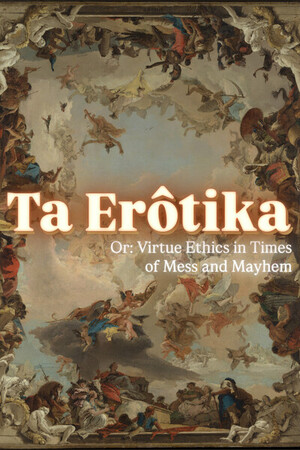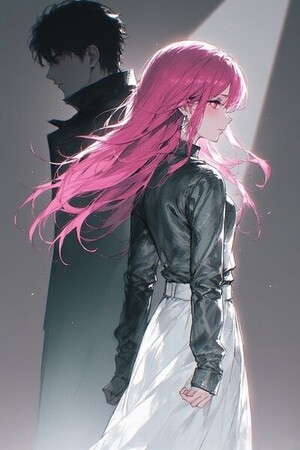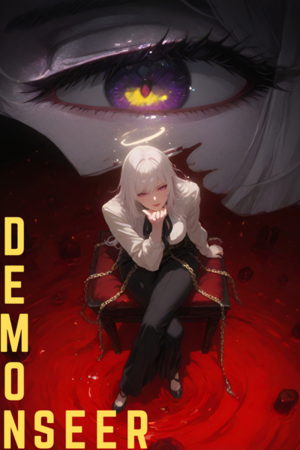Chapter 2:
PART 1 - Mourning Darling
Ta Erôtika, Or, Virtue Ethics in Times of Mess and Mayhem [working title]
Floating in that pool, here was all I could think:
Well, what else was there to say? My good friend died.
My therapist told me I shouldn’t be deflecting in situations such as this. “Better to feel and process,” she’d said. As if that could ever be easy.
“It won’t be easy,” she would then say, “processing this kind of trauma takes time and continued effort. I know you can do it!”
When you lose something of value (because why would you even care if something has none?), you go through this process that therapists love bringing up:
The Five Stages of Grief
Denial
Anger
Depression
Bargaining
Acceptance
It’s too neat, I think. One of the oldest human emotions, expressed through a numbered list. Like a receipt.
Hugh died a few months ago, so I’ve had, well— a few months to feel and process it all. I did what I could: self-care, boundaries, practicing radical self-acceptance while trying to overcome my addiction and codependency. I took baths. I hit the gym. I drew mandalas in the corner of my notebook and did breathing exercises. I drank herbal teas with blends of Ashwagandha and whatever else made it into a “top five herbs to cleanse your soul” article. I stopped worrying about the calories and finally ordered that dreadful Item Number 56: Beijing Symphony from Great Wall 2, just to see, finally, what the fuss was all about. I tried to make peace with it all, and then went to puppy yoga. Of course, in East St. Jude, puppy yoga meant awkwardly supplanting your face on a damp mat while a really angry Chihuahua barked at you. For two hours.
For which you paid a hundred bucks.
What a scam!
…
Of course, I also went to Hugh’s funeral.
It happened on a cloudy day. The sky turned a flaccid white, like it wasn’t even trying. The cool air blew pleasantly enough—one perk of summer in Literally Nowhere, Vermont, USA—although the inside of the funeral home smelled like sweat. How many people died, that it became this way? I guess I wouldn’t know, though that’s a lot of people for a place hidden among woods, accessible only by the one regional Bus 354 that comes every two days. Maybe people came here and died, or came here to die. More aging folks and college kids here than anyone important. Maybe that stench of boredom killed them all.
Maybe that’s what happened to Hugh.
The coroner’s official statement said that he died from drowning at Whitstone Creek. Hit his head and got flushed to the part of the water where the sudden depth just pulled him down under. It made sense, thinking about it. Hugh didn’t know how to swim. He came with me to Manhattan once (we have a pool in the apartment there) but didn’t go into the water. “A waste of water on me, if you’d ask,” he told me. But, like, come on, who wouldn’t enjoy a pool day?
Turned out, Hugh Murray Carmichael.
I guess he didn’t have an old man’s middle name for nothing. Hugh always had his nose in a book. He didn’t like to get his pages wet. He always carried that moleskine notepad in his book bag, which looked to be better cared for than himself. In his inside pocket, he would clip a Japanese fountain pen. He said those were more reliable and wrote much better than those Montblancs I pretended to know how to use. He would know. He wrote all the time. He once drew a large, black line across his cheek while lifting his pen. The name of some paper that fascinated him, new theories, corrections to these new theories, or new theories that built on the other new theories he came up with. Notes on Methodology and Materialism and Something Or Other… He’d said he wanted to contribute something truly original, truly… what was the word?
Paradigm-shifting.
His pen got flushed down the creek when he drowned. Nobody could find it.
Hugh’s aunt seemed to be his only family member. Margaret Wilson, she’d introduced herself. She stuck to the right side of the wooden bench in the front row, just in front of me, leaned forward, head in her hands. She was tall, unlike Hugh. A massive sleeve of thorny roses and fiery chains wrapped around her right bicep. Her voice drawled in a way that made me think of my cousins in the South. To be honest, she didn’t look much like Hugh at all. He always talked about his Aunt Maggie. I guess I was imagining a sweet Midwestern lady who worked in accounting all her life, not someone who might have mob ties and could probably snap me in half if she’d wanted to.
Let it be an indictment to my cowardice that I couldn’t find it in me to sit with Margaret Wilson. Ekene, though, was right next to her. You couldn’t miss him. He kind of stood out, and it’s not just because he’s about the only one around with dark skin and green eyes and a vaguely Irish accent. He’s tall, gangly. His arms stretched a bit too long, and he walked like he didn’t know when would be the next time he’d bump into the door frame. But he would apologize to a tree if he bumped into it. Ekene came to sit next to Margaret, probably because he noticed she was sitting alone. So they both sat alone, sort of silently, in the front row, together.
I never liked funerals. In my defense, funerals would be an odd thing for someone to enjoy. Even if they didn’t smell like sweat, they still felt, well, sweaty. The director opened the windows after a while; somebody else probably noticed that smell, too. We sat in isolated clumps, scattered across the hall, listening to the droning, cookie-cutter eulogy. The microphone screeched every now and then from its audio feedback. You’d think that having done this so many times, the funeral director would know to point the microphone away from the speaker. I knew that. To be honest, a microphone was not needed anyway. Calling that place a “hall” was an overstatement.
James was sitting next to me, his back straight, propitiously still, his suit pressed, hair neat and straightened—exactly how he was any other day. James Monaghan was in no way friends with Hugh, but he did know everyone, even the “little people,” as he’d called them. Probably why he spent his precious time attending Hugh’s boring funeral, pretending he gave a damn. He stared in the direction of the casket, eyes unblinking, hands folded neatly on his lap. If you didn’t know better, you’d think he was just attending a seminar.
I used to know what he could be thinking. Or maybe that’s just what I had told myself. Maybe he’s reciting those old German folks he kept quoting in his head. Nietzsche, probably. Something about the Super-Man, who was not the same as The Superman. He taught me what it meant once, but I already forgot.
Hugh’s funeral droned on.
Just before reception began, Margaret leaned into Ekene, who consoled her with a hand on her back. As her shoulders quivered, I heard her say,
“Whoever murdered him, it was someone in this room. I just know it.”
I remembered thinking to myself,
“Holy shit.”




Please sign in to leave a comment.